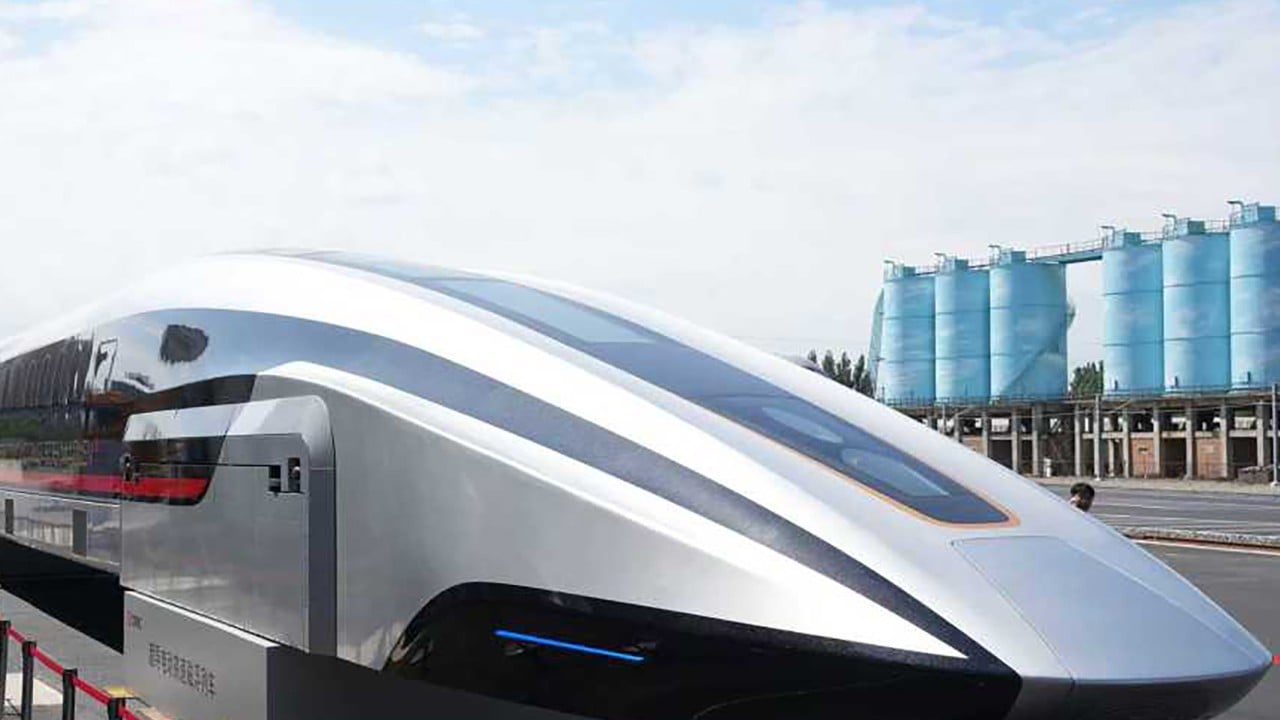A Chinese-built maglev train that will be the nation’s fastest-ever ground transport vehicle has made its public debut in Beijing – an ambitious project that is expected to drastically reduce travel times and cement China’s reputation as a world leader in high-speed rail networks.
Advertisement
The train – which can reach speeds of 600km/h (373mph) – was unveiled this week at the 17th Modern Railways exhibition, offering a futuristic glimpse of China’s rail transport aspirations.
Developed by the China Railway Rolling Stock Corporation (CRRC), the train features a sleek, aerodynamic shape with a pointed nose to reduce drag from air moving past. Video from state broadcaster CCTV showed a large video screen inside a futuristic interior.

Representatives said the first phase of engineering was completed in July last year. More route and safety tests and engineering viability assessments will be carried out before the train can go into commercial service.
The train will serve as a “point-to-point transport tool” between major cities as an addition to the existing railway network, according to Shanghai-based news site The Paper.
For example, with a top speed of 600km/h, a superfast maglev travelling the 1,200km distance between Beijing and Shanghai could slash the present travel time of 5½ hours by high-speed rail to as little as 2½ hours.
Advertisement
Senior CRRC engineer Shao Nan told The Paper that they expected to “fill the speed gap between high-speed rail and aviation within 2,000km”, combining the punctuality and safety of rail transport with the speed of air travel.


